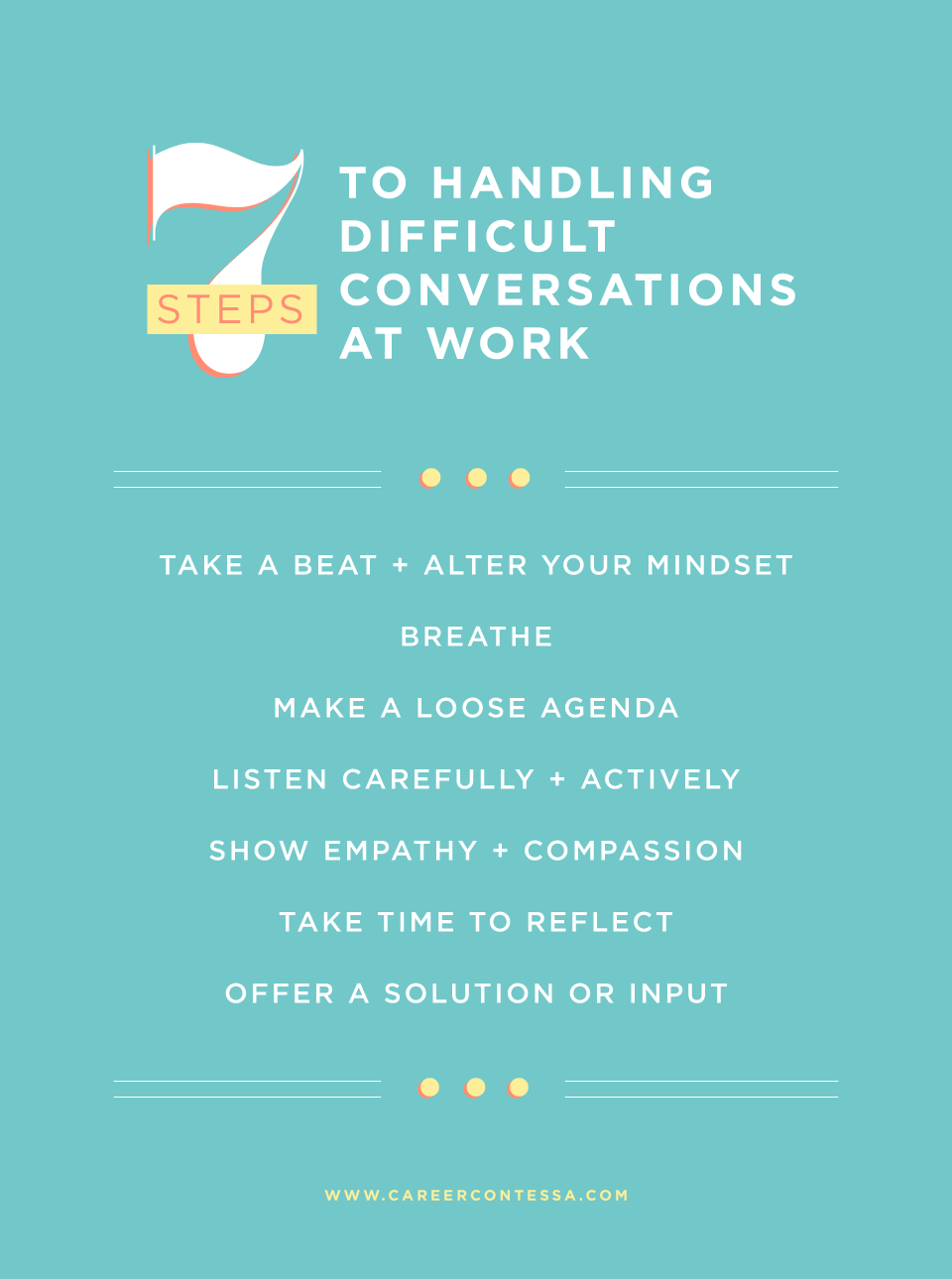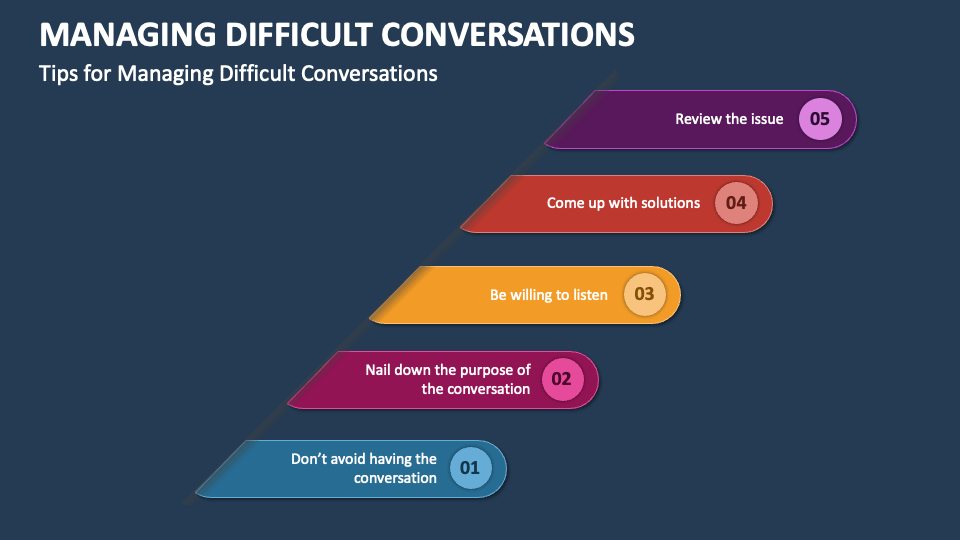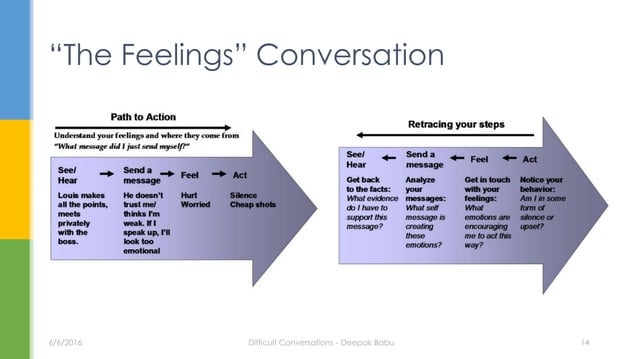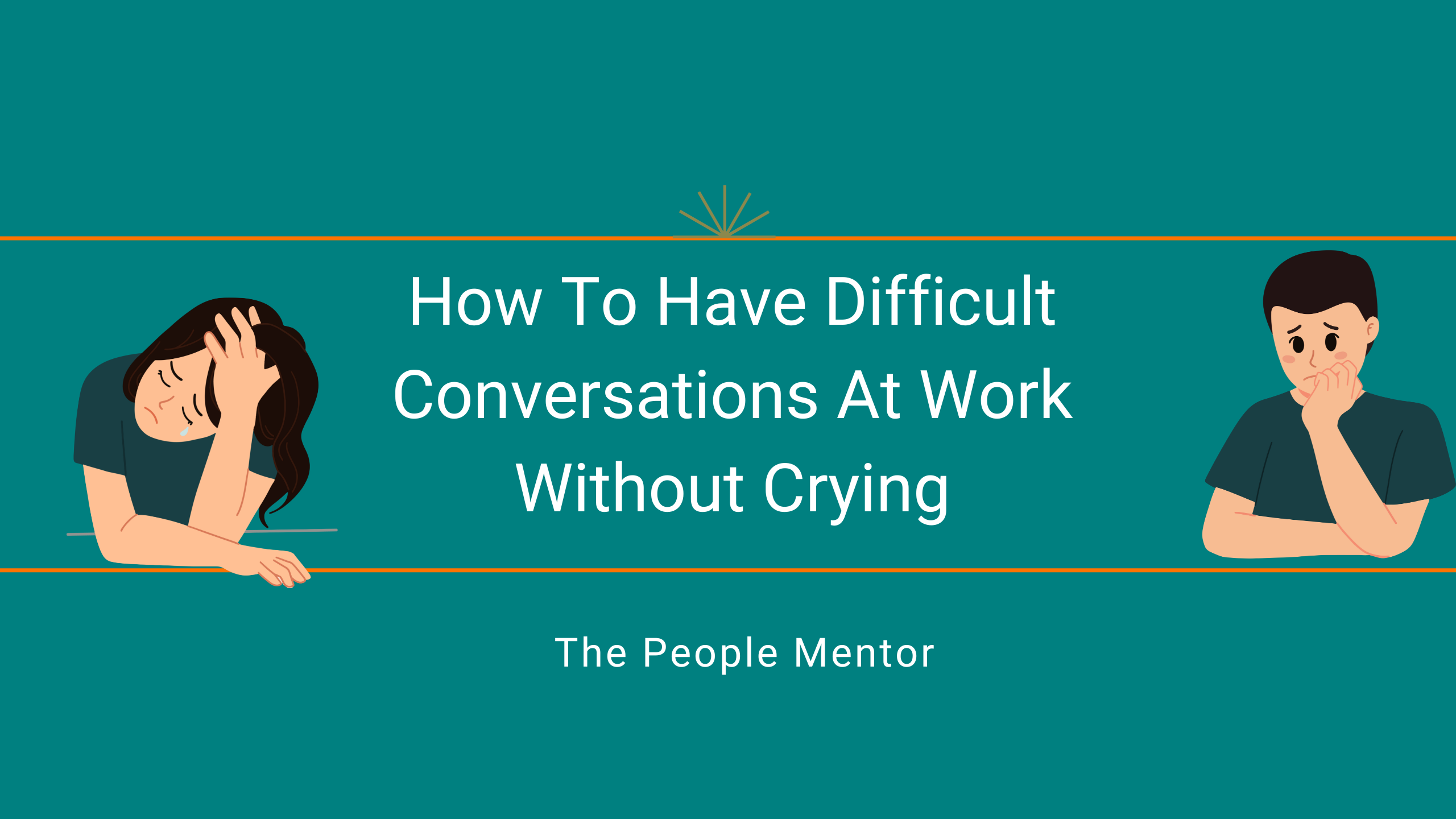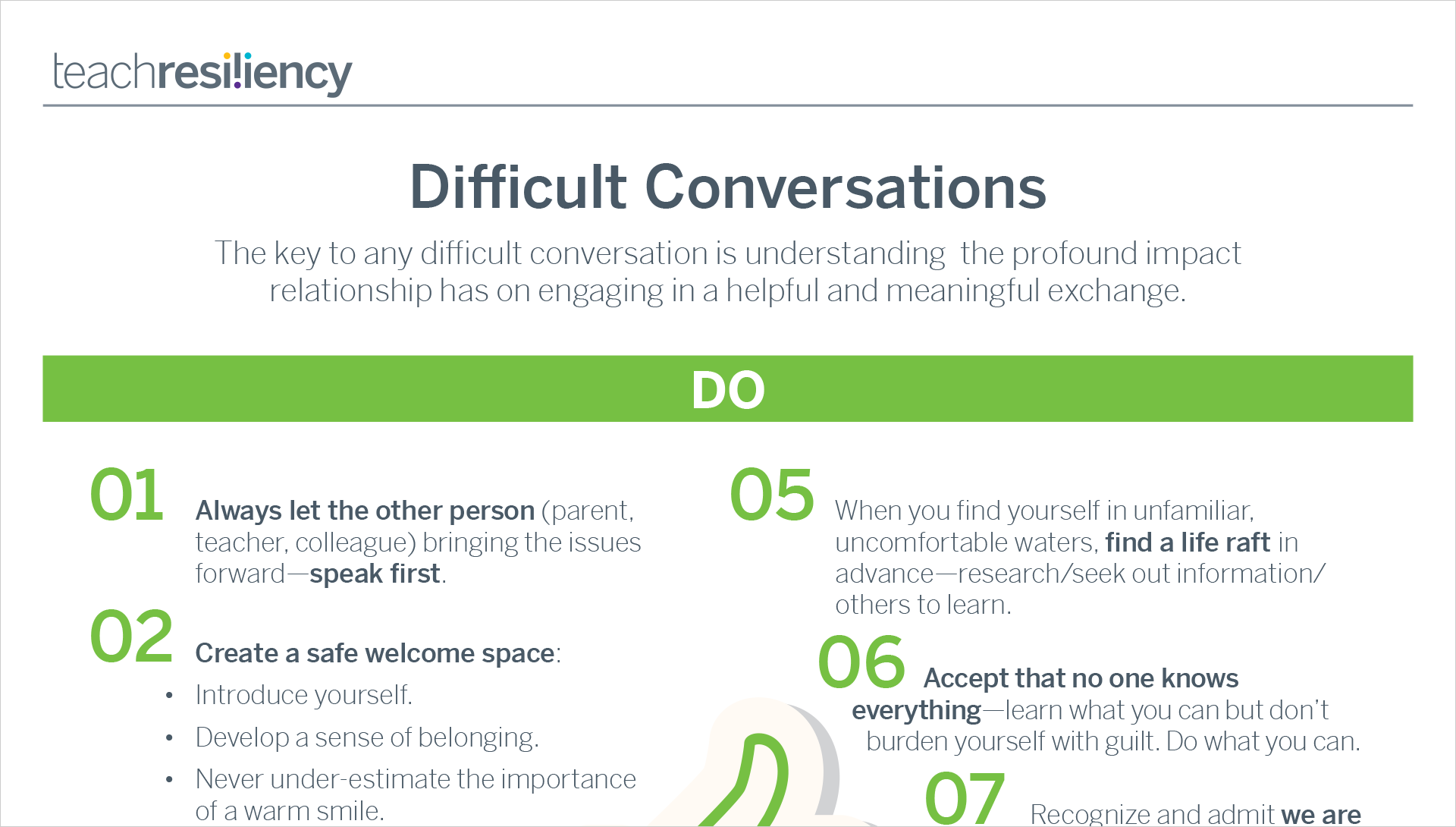How To Deal With Difficult Conversations
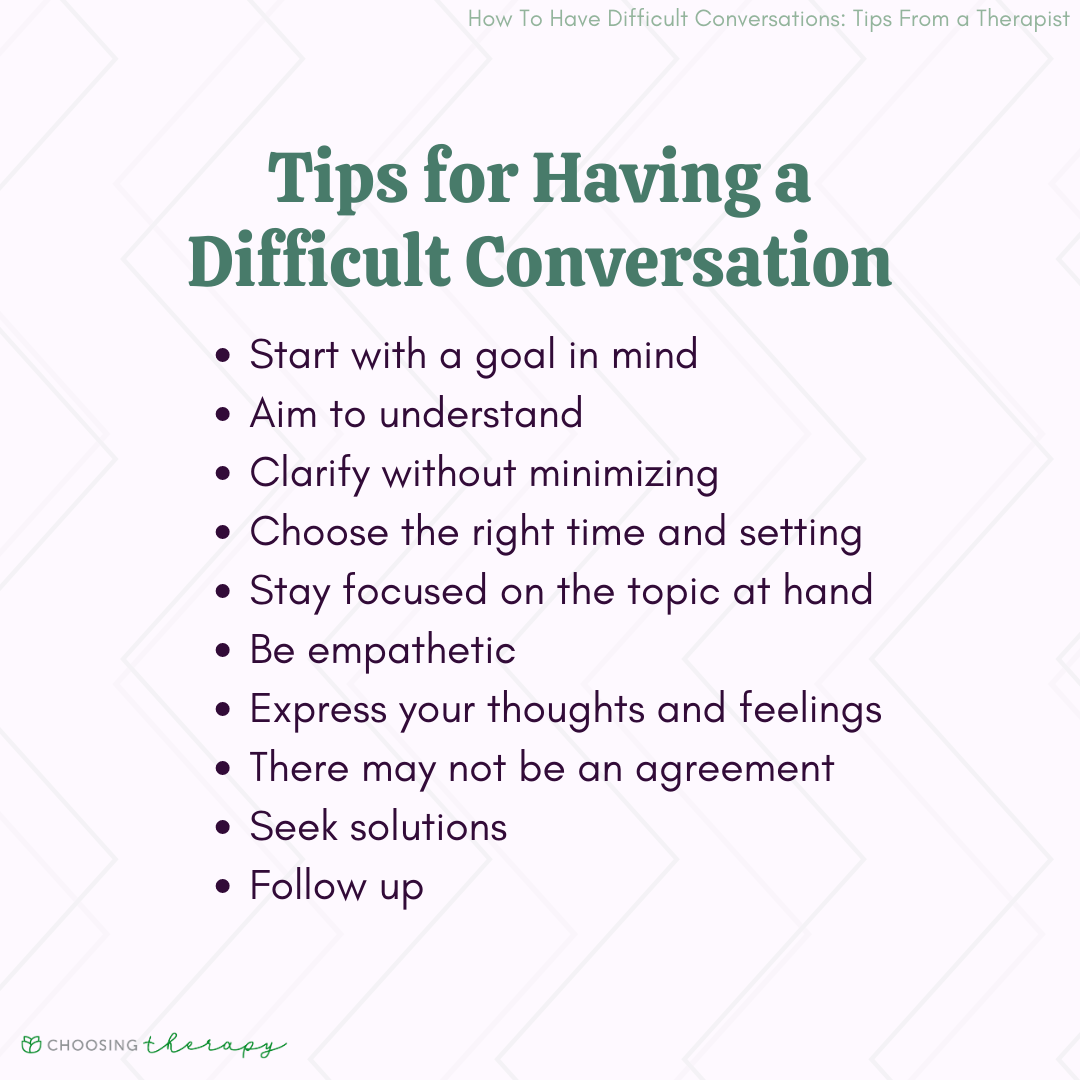
Avoidance. Tension. Dread. These are common feelings when facing a difficult conversation, whether it's addressing a performance issue with an employee, confronting a friend about a hurtful comment, or discussing finances with a partner.
These conversations, though often unpleasant, are crucial for maintaining healthy relationships, fostering productive work environments, and resolving conflicts constructively. Failing to address difficult issues can lead to resentment, decreased productivity, and damaged relationships.
This article explores practical strategies and evidence-based techniques for navigating challenging dialogues. The goal is to transform potentially destructive interactions into opportunities for growth, understanding, and stronger connections.
Understanding the Roots of Difficulty
Difficult conversations often stem from differing perspectives, unmet expectations, or emotional vulnerability. According to research from the Harvard Negotiation Project, these conversations are rarely just about facts; they're about feelings, identities, and stakes.
One common pitfall is approaching the conversation with a pre-determined outcome or a judgmental attitude. This can instantly put the other person on the defensive, hindering open communication. Self-awareness is paramount.
Before initiating a difficult conversation, examine your own motivations and biases. Ask yourself: What do I hope to achieve? Am I open to hearing the other person's perspective? Am I prepared to compromise?
Preparing for the Conversation
Preparation is key to a successful, albeit difficult, conversation. Choose a time and place where you can both speak freely without distractions. Avoid public settings or times when either of you is stressed or fatigued.
Clearly define the issue you want to discuss and gather relevant facts and examples. Avoid generalizations and focus on specific behaviors or incidents. Documenting these instances can help ensure you're presenting a clear and objective picture.
Consider writing down a few key points you want to address, as well as potential questions you want to ask. This will help you stay focused and organized during the conversation, especially if emotions run high. "Practicing the conversation out loud can also build confidence," suggests Dr. Sheila Heen, co-author of Difficult Conversations: How to Discuss What Matters Most.
Engaging in the Conversation
Start by establishing a shared purpose and tone. Use phrases like, "I want to talk about this because I value our relationship" or "My goal is to find a solution that works for both of us." This sets a collaborative tone from the outset.
Active listening is essential. Pay attention not only to the words being spoken but also to the non-verbal cues. Summarize what you've heard to ensure you understand their perspective. Ask clarifying questions such as, "Can you tell me more about that?"
Express your own thoughts and feelings using "I" statements. For example, instead of saying "You always make me feel...", say "I feel... when you do...". This helps you take ownership of your emotions and avoids blaming the other person.
Managing Emotions
Difficult conversations can trigger strong emotions. It's important to acknowledge and manage these feelings constructively. If you feel yourself becoming angry or overwhelmed, take a break.
Deep breathing exercises and mindfulness techniques can help regulate your emotions in the moment. Remind yourself of your shared goals and the importance of maintaining a respectful dialogue. "Recognizing your own emotional triggers is crucial for maintaining composure," emphasizes Daniel Goleman, author of Emotional Intelligence.
Navigating Disagreement
Disagreement is inevitable in difficult conversations. Don't shy away from it, but approach it with curiosity and a willingness to understand the other person's perspective. Seek common ground and focus on areas where you can agree.
Explore alternative solutions and be open to compromise. It's unlikely that either of you will get everything you want, but finding a mutually acceptable solution is key to resolving the conflict. Remember that understanding does not necessarily mean agreement.
If the conversation becomes too heated, suggest tabling it and revisiting it later. "Sometimes, a cooling-off period is necessary for both parties to process their emotions and come back to the discussion with a clearer head," explains a representative from the American Psychological Association.
Following Up and Moving Forward
After the conversation, take time to reflect on what was discussed and what you learned. Identify areas where you can improve your communication skills. Document the agreed-upon solutions and create a plan for implementation.
Schedule a follow-up conversation to check in on progress and address any remaining concerns. This demonstrates your commitment to resolving the issue and maintaining a healthy relationship. Consistent communication is key.
Learning to navigate difficult conversations is an ongoing process. By embracing vulnerability, practicing empathy, and developing effective communication skills, you can transform challenging interactions into opportunities for growth and stronger relationships. With practice, these conversations can become less daunting and more productive, fostering a greater sense of understanding and connection.

